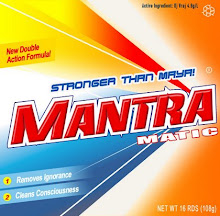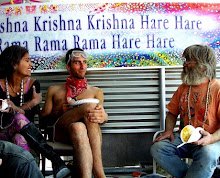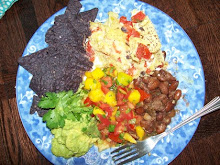 My question is, what does it mean to be free?
My question is, what does it mean to be free?I just watched the film Death of a Prophet, a weak biography on the assassination of Malcolm X. However poorly done, the film reminded me how inspired I was by reading his autobiography last year. Few people in this world are able to fully dedicate their lives for serving others in the way that Malcolm X dedicated his every moment towards the self-determination of the black man in America. My recommendation is that everyone reads the Autobiography of Malcolm X by Alex Haley. No exceptions. Young or old, black or Bengali, busy or not, just read it.
This autobiography is remarkable because one is carried through Malcolm Little's young life, from skinny red-headed, country hick to city slicker, hustling, pimping, usin' and abusin', the gauntlet. Finally in prison, after getting busted for some high-end robbery stints, he found Allah through the preaching of a minister named Elijah Muhammad, an exponent of Islam in North America who founded a Muslim organization called Nation of Islam in the early 50s. Malcolm, being an atheist, was hesitant to be receptive to anything involving the recognition of God. His brothers persisted and continued sending him letters, explaining how they were starting to organize a religious movement for black empowerment. He became inquisitive. I think his first devotional step was refusing to eat pork. His purification process greatly excelled from there.
In 1952, after his release from prison, Malcolm went to meet Muhammad in Chicago. It was soon after this that he changed his surname to "X", started outreach preaching programs and began opening up various mosques. The basic message was reclaiming the self-determination, dignity, and freedom of Black America through religious, black nationalism. As an impassioned, riveting, and confident speaker, Malcolm X opened up one hundred or so centers within a decade, installing healthy spiritual practices in thousands of households as the foundation for a successful revolution. Eventually, Muhammad confessed to extramarital affairs with his secretaries, and a crushed yet compassionate and forgiving Malcolm X eventually pulled out. Muhammad's jealousy of Malcolm's popularity and prestige, culminated into infinite numbers of death threats on Malcolm X and his family. Malcolm painfully resigned to leave the country.
Following a pilgrimage to Mecca in 1964, Malcolm converted to orthodox Islam. He was greatly moved and humbled by the diversity of the Muslim pilgrims and, thus, expanded his freedom movement to extend outside purely black participation. Less than a year later, before being able to reestablish himself and his expanded outlook, he was assassinated. I wonder what he was thinking at the time of his death? The Bhagavad Gita says, "Whatever state of being one remembers when he quits his body...that state he will attain without fail" (8.6). Might he have taken birth again as a white supremest?
Anyways, what does it mean to be free? Freedom by definition is as follows: (1) civil liberty, as opposed to subjection to an arbitrary government (2) political or national independence (3) a particular immunity or privilege enjoyed (4) personal liberty as opposed to bondage or slavery (5) exemption from external control, interference, regulation (6) power of determining one's or its own action (7) the power of frequenting, enjoying, or using at will.
These definitions are based on the concept of the material body without an understanding of the eternal soul. In chapter 2 of the Bhagavad Gita, Krsna explains, "As a person puts on new garments, giving up old ones, the soul similarly accepts new material bodies, giving up the old and useless ones (2.22)." He continues to explain that one who understands the difference between the body, the soul, and the Supersoul, will attain liberation from this material world.
The Bhagavad Gita explains that bondage is created by one's attachment to sense gratification for themselves and gratifying the senses of others without considering the gratification of the Supreme Lord's pleasure. Basic civil liberties or not, one remains a slave to the sufferings of birth, death, disease, and old age. Just as history continues to repeat itself, one people oppressing another people who in turn oppress another people who reclaim "stolen" land from another people who in turn appropriate new land for themselves and steal from others, so too is the endless cycle of karma, the law of action and reaction, and, ultimately, the endless cycle of birth and death.
Srila Prabhupada explains in the Teachings of Lord Caitanya that every being within this material world is inflicted by the suffering caused by the threefold miseries. Suffering is placed into three categories, that which is caused by the body and mind, that which is inflicted by other living entities, and that which is caused by natural disasters. Krsna instructs that one can not release themselves from the sufferings of material nature unless one takes to the path of bhakti yoga.
Because it explains freedom on a transcendental platform rather than a material platform based on one's association with a particular body, I am beginning to understand why striving to achieve Krsna consciousness is the ultimate liberation movement.
Nityodita shared in class the other day that Srila Prabhupada's guru, Bhaktisiddhanta Sarasvati, once said, "The material world is like a stool house. One should simply do their business and get out."
Did Malcolm X have a transcendental understanding of freedom? Certainly, the idea of equality, based on the principle that everyone is a child of God with intrinsic value, serves as a religious foundation, but not necessarily transcendental. His struggle was phenomenal, mostly because he installed strong religious codes and principles in the hearts of his followers. But I would argue that he presented a short-sighted and temporary vision of freedom. Regardless, his work was monumental in changing this nation's consciousness of discrimination based on the color of one's skin.
Today I was looking around the temple room, observing the eclectic peoples who have gathered here to dedicate their lives, working for the transcendental welfare of Krsna's children. Bengali, Estonian, British, African American, Hungarian, Native American, Hawaiian, and me, young and old, men and women. As one can determine a thriving ecosystem by its diversity, I judge healthy movements by the same principle.
The Krsna consciousness movement is about achieving the highest form of freedom. Based on the philosophy that we are not these bodies, only spirit souls, Krsna consciousness is assisting one's desire to eliminate the suffering of all living beings in the material world. Through the means of developing proper loving relationships with others, regardless of one's external bodily features, eternal liberation is found in the heart's of devotees at every moment. Bodies, bodies everywhere, yet not a one to remain occupied forever!















No comments:
Post a Comment